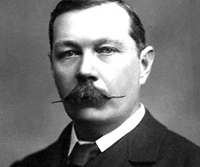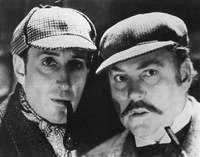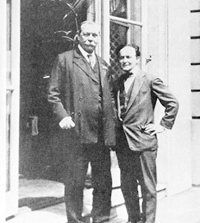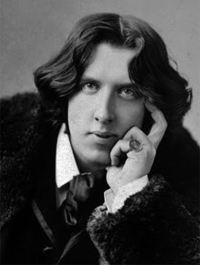A strange undertaking
Posted on 14 August 2010, 15:25
I ask my companion why he is buying two cars that cost £105,000 each; it seems a lot of money. His reply is quick and simple: ‘It’s all about perception,’ he says.
I’m spending longer than usual in the front of a hearse and the undertaker seems eager to talk. As one car tries to cut us up, I ask whether a funeral cortege is generally respected by other drivers. ‘Less and less. We have drivers trying it on about four times a week,’ he said. ‘But we have our methods. There are certain junctions where it’s more likely, so we get closer together at those points, nose to tail. If anyone does get in between us, we slow right down and box them in. We try and make them regret it.’
He mentions the expensive limousines they’re about to buy, and explains the reasons. ‘It’s all about perception in this business,’ he says. ‘Close family may be grieving at the funeral, thinking of the deceased, but most of the people there are looking around at what’s happening. Is the undertaker’s tie straight? Are his shoes clean? And what are the cars like?’ This matters because four out of five of his clients are return customers; mourners who’ve seen them handle a funeral before. ‘The big corporate undertakers can afford the new cars, so we have to play that game as well. You have to look good in this business.’
I remember being told that family undertakers were being driven out of the business by ‘corporates’ but he says this isn’t true at all. ‘We charge less and still make a good living. And of course our staff have roots in the area. The corporate operations employ fly-by-nights, with different attitudes.’ I discover that new family firms are starting up, and that people are often prepared to pay huge sums for their funerals. ‘The most expensive coffin we offer is £26,000. That’s for burials obviously. The flash metal work wouldn’t work in a crematorium.’
I also discover some tricks of the trade. ‘When an undertaker hands the client the coffin brochure, they always open it in the middle and say ‘You can either go up or you can go down.’ Of course, no one dares goes down. And you don’t offer anyone a ‘basic’ coffin; never use that word, customers don’t like it. You call it a ‘normal’ coffin, and that’s OK.’ And it’s clear he has his share of odd requests. ‘Undertakers are middle men really, that’s all we are; we fix things. I had someone asking for a pink hearse recently. I said that was fine and that it would cost £5000. They queried the expense, and so I explained: we’d first need to spray a black hearse pink, and then after the burial, spray it black again. They were surprised there wasn’t a pink hearse out there already.’
So never ask for whom the bell tolls; but do check out the quality of service. One day, you too might be knocking on their door.
Read comments or post one of your own
|
When Simon met Sir Arthur Conan Doyle
Posted on 13 August 2010, 22:45
When I was asked to write about Arthur Conan Doyle, I hesitated; because all I really wanted to do was meet the great man, and what chance of that? But then something happened. As a part-time therapist, I’m always struck by how little I know of someone until I meet them. I may have information about them, but until I’ve listened to them reflect on their lives, the chemistry isn’t there and I know almost nothing. So what to do with Doyle, whose own favourite Sherlock Holmes story was ‘The Speckled Band’ involving a snake, a whistle and a fatal bed.

The answer to my problem came in a moment. I’ve always loved dialogue. I used to write satirical comedy for programmes like ‘Spitting Image’ and ‘Weekending’. And then as a therapist, I know the power of dialogue to create something which didn’t exist before; the power of two souls meeting. So the idea was born: why not speak with Doyle? After all, he left a huge amount of personal material behind. So what if I were to imagine a conversation with him - but use only his authentic words?
There are many who publish imaginary conversations with figures from the past; but this usually involves them imagining their hero’s words as well, and I didn’t wish to go down that path. I feared the characters would end up sounding suspiciously like me. No, I wanted to meet the people, not mould the people; and using only their authentic words would both keep me honest and their integrity in tact. Doyle was attacked by many; I needed to allow him to speak for himself.
It was a long process, first assimilating the material and then engaging with it critically as one does in conversation. By the time I put my questions to Doyle, it was as if I was meeting him face to face, and the conversation felt entirely real. Sometimes I was angry at his dissimilation or amazed at his credulity; at other times, I admired his energy and strength, delighted in his stories from beyond the grave. There was a great sadness in the man, and yes, we had some awkward pauses.
So has the conversation idea worked? Initially, the omens were not good. Most I spoke with about the project were quietly sceptical. Strangely, it didn’t seem to have been done before, and perhaps there was a good reason for that. ‘If it hasn’t been done, Simon, there’s probably a reason.’ But these same people have been kind enough to change their minds on reading the results, which can read like a transcript from a therapy session.
The fact is, time spent with words about someone, is not the same as time spent with someone’s actual words. No one is elusive when you listen to them, and so although I came to Doyle largely ‘cold’, I now know him well. I don’t know everything about him, but I understand the forces at work in the ‘making room’ of his soul; forces which emerge in various guises in his life. In many ways, and this is perhaps worrying, I know him better than I know myself.
I came to him, as many will, as a fan of the Sherlock Holmes adventures, which he started writing when life as a doctor wasn’t going well. I loved the stories, the writing and the character of Holmes. What I hadn’t realised was that despite a public outcry, and the huge wealth he brought, Doyle killed off Holmes as quickly as he could, feeling the detective was holding him back. ‘He took my mind from better things,’ said Doyle, and those better things turned out to be the Spiritualist cause, for which he became a leading advocate. Here was his pearl of great price. As he said, ‘I’d give family, title, whatever fortune I possess, my literary reputation – they are all as mud in the gutter to what spiritualism is to me. I know that it explains all of life to me; and I know how inexplicable life was before.’

Of course, I was keen to ask where he got the idea for Sherlock Holmes – his lecturer in medicine at Edinburgh University was the model apparently. But there was much else to discuss, like his love-hate relationship with Harry Houdini, with whom he struck up a relationship after attending one of his shows. And then there were his very mixed feelings about religion. After unhappy experiences at Roman Catholic schools when young, he gave up belief in institutional and supernatural religion; but maintained a respect for Jesus: ‘Christ is the highest spirit known’ he said.

And did Oscar Wilde really continue to write after he died? Doyle thought so. He had met Wilde for a meal in London, had enjoyed his company, and was convinced that Wilde carried on composing through mediums from the grave. He even went so far as to say that ‘the Oscar Wilde transcripts are the best evidence for the survival of personality that I know of.’ And as we contemplated Wilde’s post-death pieces, I could see his point. It was harder, however, to understand his support for the existence of fairies. How could the man who created the ruthless logician Holmes determinedly seek out goblins around the world?

Doyle kept surprising me throughout our conversation, and never more so than with his stories of psychic detectives who solved crimes the police had given up on. And as I listened, it was hard to disagree with the evidence.
He came in for intense ridicule in his final years, but he was nothing if not stubborn in a life full of sadness as well as success. His father was an alcoholic – something he skates over - and his first born son and his dear brother both died in World War One.
He could never quite tell me how angry he felt; but then I suspect he could never tell himself that either. Things may have been ‘elementary’ for Holmes; but they were always a fight for Sir Arthur Conan Doyle.
Simon Parke’s ‘Conversation with Sir Arthur Conan Doyle’ is published by White Crow Books at white crow books.com. He has also spoken with Vincent Van Gogh, Leo Tolstoy, Meister Eckhart, Wolfgang Amadeus Mozart and Jesus of Nazareth..
Read comments or post one of your own
|